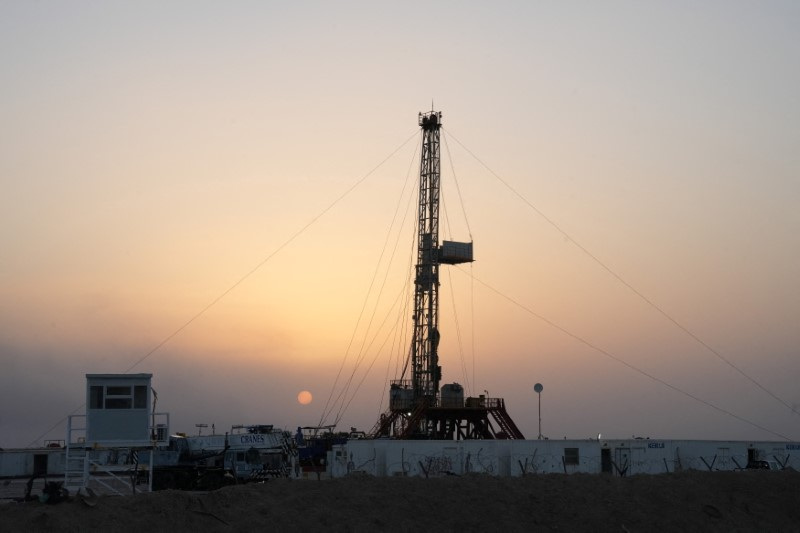Oil prices pause after five-day winning streak
By Arunima Kumar
BENGALURU (Reuters) -Oil prices were stable on Tuesday after five straight winning sessions as supply risks posed by widening Middle Eastern conflict were tempered by demand concerns a day after OPEC cut its forecast for demand growth in 2024.
Benchmark Brent crude futures were down 44 cents, or 0.53%, at $81.86 a barrel as of 1220 GMT. U.S. West Texas Intermediate crude was down 34 cents, or 0.42%, at $79.72
Downside potential in oil prices could be limited as geopolitical tensions persist, contributing to market uncertainty and supporting crude prices, said Li Xing Gan, financial markets strategist at Exness.
Brent on Monday gained more than 3% while U.S. crude futures rose more than 4%.
"Crude oil traders are facing a geopolitical curveball courtesy of yet another face-off between Israel and Iran. But unless oil and gas facilities are hit, any upside for oil prices will not be sustained in the face of uncertain demand," Gaurav Sharma, an independent analyst, said.
"Even OPEC – up until now the most bullish of demand forecasters – revised its projections lower on Monday on concerns over China’s imports," Sharma added.
The 2024 demand forecast cut from the Organization of the Petroleum Exporting Countries' (OPEC) highlighted the dilemma faced by the wider OPEC+ group as it aims to raise output from October.
Also on Tuesday, the International Energy Agency (IEA) kept its 2024 global oil demand growth forecast unchanged but trimmed its 2025 estimate, citing the impact of lacklustre Chinese consumption on economic growth.
Still, investors remained watchful of the latest geopolitical tensions.
The Middle East conflict has escalated, with the U.S. preparing for what could be significant attacks by Iran or its proxies in the region as soon as this week, White House national security spokesperson John Kirby (NYSE:KEX ) said on Monday.
Any attack could tighten access to global crude supplies and boost prices. An assault could also lead the United States to place embargoes on Iranian crude exports, potentially affecting 1.5 million barrels per day of supply, analysts said.
"If an eventual Iran retaliation falls within the scope of a so-called proportionate response, and (upcoming economic data) ... disappoints, then Brent holding on to its $80 handle may prove challenging," said Harry Tchilinguirian, head of research at Onyx Capital Group.
Markets are also preparing for Wednesday's U.S. consumer price index report that will give a crucial read on inflation.
Source: Investing.com
